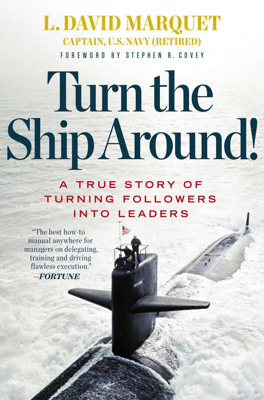Combat Effectiveness
Critical Naval Exercises in the Arabian Gulf
In September 1999, the USS Santa Fe conducted a submarine attack exercise in the Arabian Gulf, targeting the USS Olympia which simulated an enemy submarine. This exercise was crucial, demonstrating the U.S. submarine force's capability to neutralize threats in shallow waters, conveying a strategic message to potential adversaries about their vulnerability.
Leadership and Operational Success
- Observational Leadership: Captain Marquet was able to oversee the operation without directly intervening, indicating the successful implementation of a leader-leader model rather than a leader-follower approach.
- Heritage and Ritual: During the exercise, the crew used traditional World War II phrases to report torpedo status, integrating historical naval culture into modern practices as a form of inspiration and team cohesion.
Substantial Reenlistment and Rewarding Excellence
Following the successful exercise, Admiral Krol presided over a reenlistment ceremony, where tax-free bonuses were awarded due to the submarine's operational location in a combat zone. The year saw a record number of reenlistments and bonus awards on the USS Santa Fe, underscoring the effectiveness of the ship’s leadership approach.
SEAL Team Recovery Operation
- Preparations and Autonomy: In a subsequent mission involving a SEAL team, extensive preparations by the crew demonstrated their proactive involvement and readiness to support the SEALs without direct orders from Captain Marquet.
- Phase Implementation: The mission included three phases — receiving the SEAL team via helicopter, deploying them for operations, and a complex recovery in dark, challenging conditions.
Leadership under Pressure and Questioning Authority
- Encouraging Questioning Attitude: A critical moment during the SEAL team recovery saw Captain Marquet mistakenly ordering a maneuver that would have jeopardized the mission. A junior sailor, recognizing the error, confidently corrected him, preventing potential failure.
- Mechanism for Clarity: This instance reinforced the mechanism "Encourage a Questioning Attitude Over Blind Obedience," which emphasizes the importance of feedback and challenge at all levels to ensure operational success and safety.
Reflective Questions for Organizational Effectiveness
- The chapter ends with questions prompting leaders to consider the resilience of their organizations, the willingness of their team members to question orders for effective outcomes, and whether their cultural practices promote obedience over operational effectiveness.
This chapter underscores the importance of decentralized decision making empowered by the leader-leader model and the critical role of fostering an environment where questioning authority is not only allowed but encouraged for ensuring mission success and organizational resilience.
